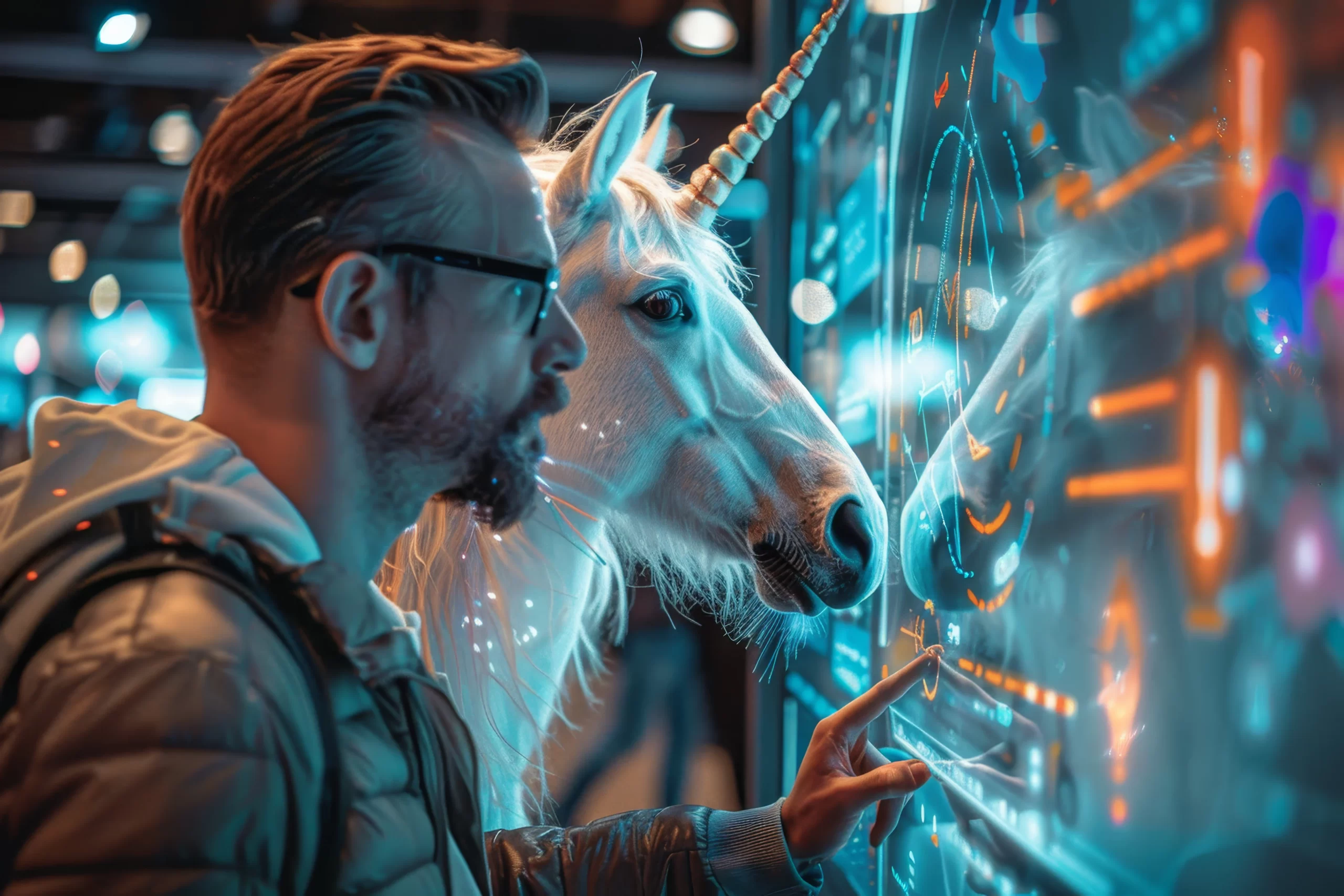The race to $1 billion is no joke, especially in the tech world. Yet, some AI unicorns have hit the coveted $1 billion valuation, and are racing to succeed at lightning speed, leaving traditional industries struggling to keep up. Fueled by jaw-dropping innovation, explosive growth, and an insane funding round.
But why is the AI space producing so many unicorns, and how are these companies climbing the valuation ladder in record time? Let’s pull back the curtain on the fastest AI unicorns, understand their secret sauce, and explore what makes them the billion-dollar crowns of our generation.
Why the Stakes Are So High?
Artificial intelligence is reshaping every aspect of our lives, from how we communicate to how businesses operate. The global AI market is projected to skyrocket to $1.8 trillion by 2030, with industries scrambling to adopt AI solutions to stay relevant.
In tech, timing is everything. The faster a company reaches unicorn status, the more it’s a sign of market demand, investor confidence, and scalable technology. Startups in this space are using the hottest trends like generative AI, predictive analytics, and autonomous systems to not only disrupt industries but dominate them.
What used to take startups seven to ten years is now happening in as little as two to three years for AI unicorns. This unprecedented pace highlights the potential of artificial intelligence and the futuristic founders behind these companies are cashing in on it.
The Record-Breaking Unicorns
Let’s meet the AI startups that not only reached unicorn status but did so at breakneck speed. These companies lead the rules and rewrote them.
1. OpenAI
If there’s one AI unicorn everyone knows, it’s OpenAI. Its blockbuster product ChatGPT redefining how we use technology, OpenAI skyrocketed to unicorn status faster than most startups write their first business plan.
Remember when ChatGPT became an overnight sensation? amassing over 100 million active users within its first two months with an adoption rate faster than Instagram or TikTok. With backing from tech giants like Microsoft and an early valuation surge, OpenAI became a unicorn at warp speed and is at a valuation of $30 billion. Investors? All in. Users? Millions. Future? Unlimited.
2. Anthropic
Born out of a mission to create safer AI systems, Anthropic is a unicorn that values responsibility as much as revenue. Launched by former OpenAI employees, this startup tapped into a growing concern and that is how do we make AI systems ethical and trustworthy?
Dubbed the “ethical AI startup,” Anthropic blasted through the $1 billion mark in record time within just two years, backed by heavyweights like Google and other top-tier VCs. Its rapid ascent shows that doing good and doing well can go hand in hand.
3. Scale AI
Data is the backbone of AI, and Scale AI knows it. Specializing in data labeling and processing, this company provides the foundation for some of the most advanced AI systems in the world.
Scale AI hits unicorn status faster than most companies can set up their first office. They are the secret sauce behind some of your favorite AI applications. It’s the backstage hero of AI.
4. Hugging Face
Hugging Face doesn’t just build tools. They built a community. Known for its open-source AI models and developer-friendly platforms, this startup became a unicorn by creating solutions that developers love.
Their collaborative approach has helped companies across the globe adopt AI with ease, propelling Hugging Face to unicorn status faster than most startups can develop a minimum viable product.
Why This Matters?
The rise of AI unicorns is a look into the future of innovation. These companies are reshaping industries, driving new economic opportunities, and pushing the boundaries of what technology can do.
The lesson is clear for aspiring entrepreneurs and that is if you want to build something extraordinary, think big, move fast, and solve real-world problems. The AI boom is still in its early days, and there’s plenty of room for new players to join the ranks of unicorns.
What’s Next?
As AI grows, we will see more record-breaking unicorns come into the spotlight. The pace of innovation is only accelerating, and with advancements in areas like quantum computing and neural networks, the next wave of AI startups could reach $1 billion even faster.
The question isn’t whether there will be more AI unicorns but who will get there next. The stage is set, the stakes are high, and the race is on.









